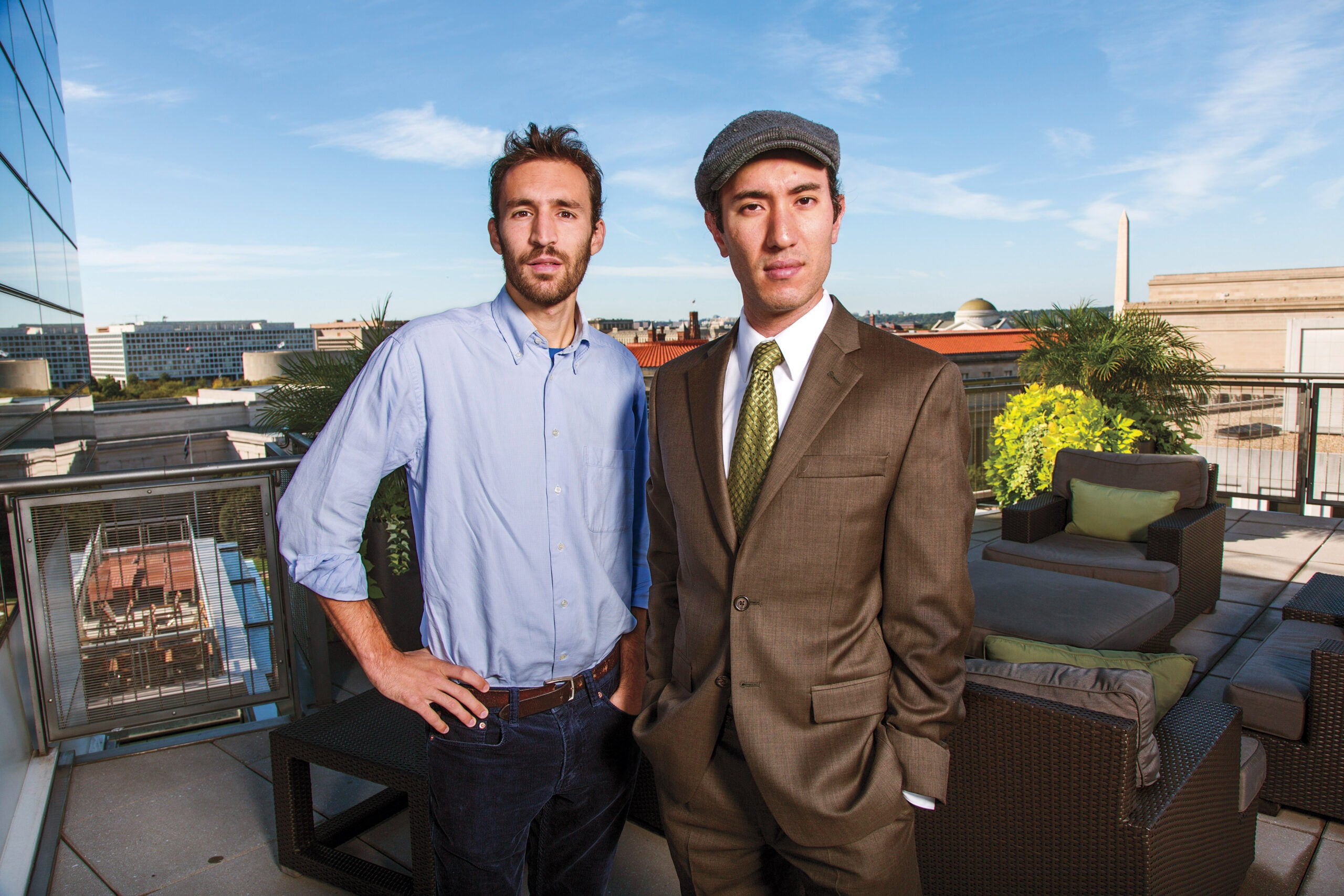Until last spring, scores of destitute people—virtually all of them African-Americans—were locked up in the city jail of Montgomery, Alabama, for traffic tickets they couldn’t pay, sentenced to a day in jail for every $50 they owed. They could earn a $25 credit daily by providing free labor, scrubbing blood and feces off jail floors and cleaning buildings.
But on May 1, a federal judge issued a preliminary injunction barring the imprisonment of three debtors for nonpayment of fines, citing a 1983 Supreme Court decision that prohibited imprisonment for debt, in a lawsuit filed by two Harvard Law School graduates. Alec Karakatsanis ’08 and Phil Telfeyan ’08 brought the case through Equal Justice Under Law, the nonprofit civil rights organization they launched in March—supported by a 2013 HLS Public Service Venture Fund seed grant—to challenge the profit motive in the criminal justice system.
Last year, the city of Montgomery reaped $15.9 million from the practice of jailing people for nonpayment of fines. And the company it hired to monitor debtors charged people a monthly fee for being on probation, according to the two lawyers.
These practices have been enormously lucrative for the city and for the corporation with which it has contracted to collect the debts, said Karakatsanis, “but devastating for poor people of color in Montgomery.”
The three plaintiffs in the original suit were freed by the judge’s ruling, and dozens of others were later released by the city, which is under court order to prove that it isn’t jailing people because they’re too poor to pay. And the firm has now filed a class-action suit opposing the practice. “At the core of it all is the idea that no human being should be caged by her government for being poor,” said Karakatsanis, who was interviewed about the case on NPR in June.
The city canceled its contract with the probation company, freeing about 1,500 people from having to pay $40 a month to the company in addition to whatever they owed the city. “We negotiated a new set of procedures to be applied going forward in Montgomery, and we are working toward a broader settlement that will bring big changes,” he said.
Since its founding, the Washington, D.C.-based organization has further expanded the focus of its work. Before the shooting death of Michael Brown in Ferguson, Missouri, in August, which focused attention on the militarization of local police forces, Karakatsanis and Telfeyan had already turned their attention to that issue by filing three major cases against the District of Columbia.
“The cases were the culmination of a yearlong systemic investigation into the D.C. police and their practices and tactics in terrorizing low-income families of color with hundreds of SWAT home raids,” said Karakatsanis.
The organization is also investigating and preparing a major challenge to the bail industry, and has challenged Alabama’s severe sex offender law, passed in 2011, as a violation of the prohibition against ex post facto laws. The new law punishes people who completed their sentences decades ago, making it nearly impossible for them to get jobs or housing. Along with a Montgomery attorney who originally filed the case, Karakatsanis and Telfeyan tried it in federal court in Montgomery in March; the judge’s decision is expected soon.
Before launching the practice, Karakatsanis, who’d also worked as an assistant federal public defender in Alabama, litigated criminal and civil cases with the Public Defender Service for the District of Columbia, and Telfeyan was a trial lawyer in the Civil Rights Division of the U.S. Justice Department. They served together at HLS on the Harvard Law Review and in the Criminal Justice Institute, and as Harvard Defenders.
Alexa Shabecoff, head of the HLS Bernard Koteen Office of Public Interest Advising, who is directing the Public Service Venture Fund, said Karakatsanis and Telfeyan’s proposal for funding was especially compelling because of its unique focus on challenging the profit motive in the criminal justice system. The fund committee recognized exceptional potential not only in their backgrounds and their vision, Shabecoff added, but also in the “sheer force of their personalities.”
Said Karakatsanis: “One of our goals is to identify things that have become utterly normalized in our legal system that we think are outrageous and should not be accepted.”
“I think all judges and all lawyers enter the profession because they have a sense of justice,” said Telfeyan. “Our goal, especially when dealing with judges, is to remind them of their sense of justice and inspire them to act based on that sense.”
